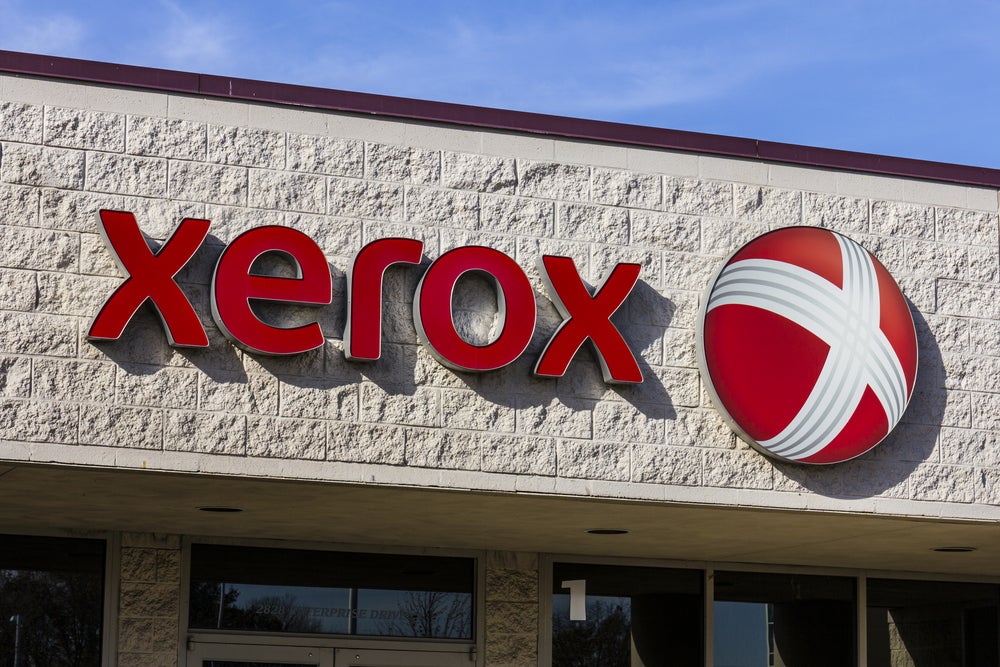Heidelberg FS plans for all
sales to eventually go through all of its leasing
partners.

Access deeper industry intelligence
Experience unmatched clarity with a single platform that combines unique data, AI, and human expertise.
 While print giant Heidelberg achieved sales of only €2.3bn
While print giant Heidelberg achieved sales of only €2.3bn
in its 2009-10 financial year, some 23% down on previous figures,
its finance division, Heidelberg Financial Services (HFS), has
enjoyed a largely invisible success.
On paper, HFS seems tiny, contributing just
€19m (as opposed to €25m in 2009) to the company’s overall
result.
However, this figure represents only interest
earned from leases on HFS’s book, which itself only accounts for a
small proportion of deals arranged by HFS.
For the most part, HFS’s business involves
financing its parent’s equipment sales through a plethora of other
lessors – something that does not show up on the company’s annual
report.

US Tariffs are shifting - will you react or anticipate?
Don’t let policy changes catch you off guard. Stay proactive with real-time data and expert analysis.
By GlobalDataAs such, the reduction in income from the HFS
book is good news, since it means less risk locked up on the
balance sheet of the company, in accordance with the HFS’s aim to
de-emphasise its role as a captive finance provider and do more and
more work with third-party funders.
“My dream, eventually, is to have little or no
book, and achieve more or less all finance sales – at least in
developed markets – with our partners,” said HFS’ head Stephan
Knuppertz, explaining his vision for the division.
Knuppertz began the push for more third-party
deals when he took over the print giant’s finance division in 2006
and has done a lot to build relationships with global players such
as SG Equipment Finance, Suedleasing and VR Leasing.
Currently, HFS handles around 50% of
Heidelberg’s equipment sales, passing around 90% of this total to
other lessors and writing the remainder on the book of HFS’ captive
component, Print Finance.
In the sizable portfolio that HFS does retain
(standing at €212m as of 31 March 2010), the numbers are looking
better than they did a year ago due to a sharp programme of
collections activity that saw 50% of HFS’ credit risk resource
diverted from new business to collections work.
At the company’s year-end on 31 March, HFS had
manage to reduced the proportion of overdue payments in its loan
book considerably year-on-year – an impressive feat considering the
spike in overdues observed by Knuppertz in June 2009.
As a result, loss provisions and write-offs
remained at a stable level over the year – a solid success,
compared to the general situation in the leasing sector.
A different way of
working
The challenge that HFS has had in
keeping write-offs at a stable level is emphasised by the risk
profile of its book; rather than take on the cream of Heidelberg’s
sales in terms of customer credit quality, HFS has a policy of
allowing partners first refusal on prospective deals.
As a result, in developed markets at least, it
largely takes on the deals which, while still reasonable from a
risk perspective due to HFS’ intense asset value knowledge, fall
below the underwriting standards of other generalist funders.
Given the tightening standards of underwriting
seen across the industry, one would expect HFS’s proportion of
own-book lending to have increased during the recession due to
partners refusing a greater share of offered deals on credit
quality grounds.
On the contrary, the percentage of business
being transacted by other parties has remained at a constant high
level in 2009, with the division’s book shrinking on an interannual
basis according to plan.
Worth bearing in mind is the fact that some
two-thirds of HFS’ direct finance portfolio is held in developing
markets such as Brazil, Eastern Europe and Mexico – countries where
sales are more inaccessible to major banking networks. Brazil in
particular has provided a big portion of recent deals written to
the Print Finance portfolio.
Even in these jurisdictions, however, HFS is
beginning to do more and more deals with local financiers and
global partners alike. Again, one particular example is Brazil,
where a continental deal with German lessor Suedleasing has seen
increasing numbers of cross-border deals done for Heidelberg
machines in addition to some local business through SG Equipment
Finance.







